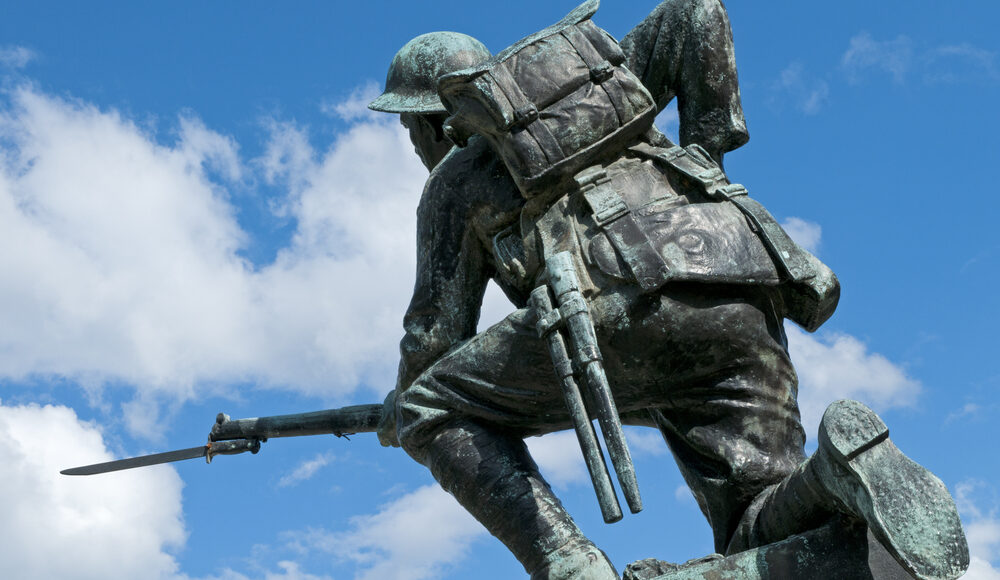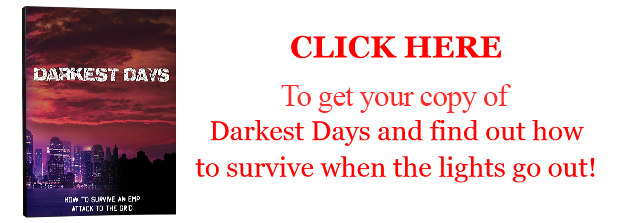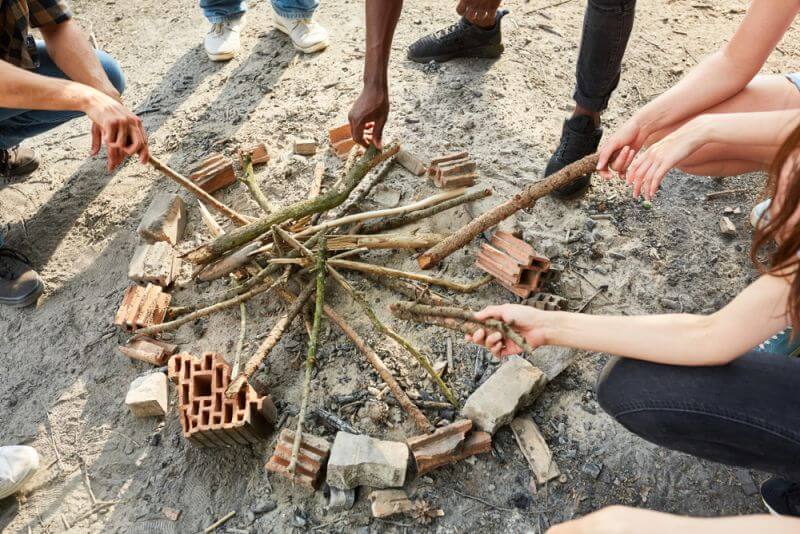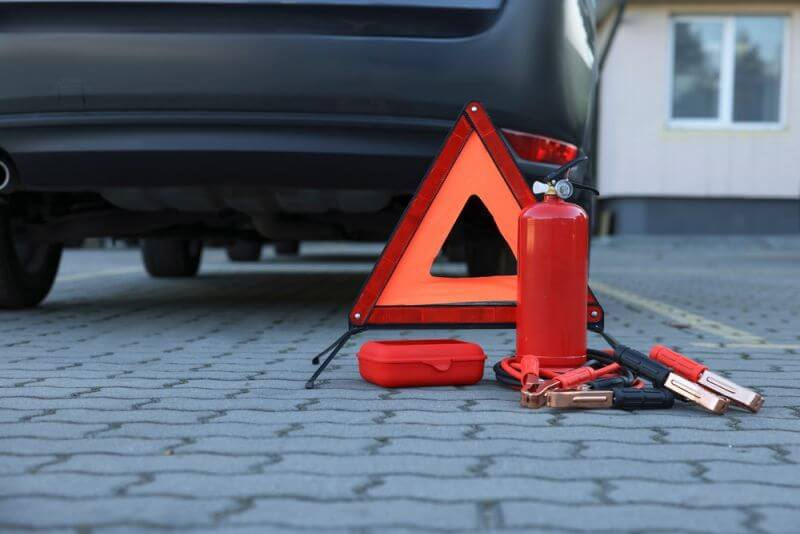The Russian invasion of Ukraine seems to be stuck in the mud, with a 40-mile long convoy just 15 miles outside of Kyiv (sometimes spelled Kiev) that hasn’t moved in over a week. The Ukraine president, Volodymeyr Zelenskyy, has asked NATO in general and the United States specifically to declare a no-fly zone over the country, defending them from Russian aerial attacks. That’s not likely to happen right now, as everyone is concerned about it triggering World War III.
Vladimir Putin has managed to hold the whole world at bay with the threat of nuclear war, effectively stopping any aid that Ukraine might receive, even before the various governments of the world began to contemplate sending that aid. Everyone is afraid that helping Ukraine will result in severe consequences, both in widening the war and having their countries devastated by a nuclear attack, something that our own president probably wouldn’t have the nerve to counter.
For over four decades, east-west peace was maintained by a philosophy called MAD, which stood for “Mutually Assured Destruction.” The idea was that neither the United States nor the now-defunct Soviet Union would start a nuclear war because the response would be destruction of their own country by nuclear-tipped ICBMs (intercontinental ballistic missiles). With the thousands of ICBMs and nuclear warheads that both sides held, destruction was a certainty.
Today, the US and Russia each hold about 400 ICBMs, making the calculus of a nuclear war look much different than it did during the Cold War. While those 800 missiles could still cause massive destruction, gutting both countries, it would theoretically be possible to survive such a war. But the real risk is tactical nukes, a category where Russia outnumbers the United States by almost 10 to 1. Should Putin decide that he has to punish some European country, those are probably what he would use, and we don’t have a good counter to that card.
But perhaps all that is moot. We may already be watching the opening days of World War III, without even realizing it. Not only has Putin been threatening the world with nuclear war, but he has also specifically singled out three European counties which he has threatened with invasion, should they even look like they’re going to join NATO.
Does this mean that further war is on the horizon, no matter what anyone does? Is Putin acting just like Hitler, looking for reasons to invade his neighbors, with an eye to conquering Europe? He has already made it clear that he wants to restore the former “greatness” of the Soviet Union, which clearly includes reclaiming all the territory that was once under Soviet control.
With that being the case, I have to ask once again, are we already watching the beginning of World War III? Is Putin going to use whatever happens as an excuse to widen the war? Or is it possible that he’s going to take another page out of Hitler’s playbook and manufacture excuses to invade other neighboring countries, just like he did with Ukraine?
What will happen to us, here in the United States, should the war broaden out into World War III?
I don’t think we can consider World War III as only a European War, any more than we could consider World War I as one. China has been threatening the other countries surrounding the South China Sea for years and has been looking for an opportunity to take over Taiwan for decades. With the US heavily involved in a war in Europe, chances are pretty high that China would see that as an opportunity to attack Taiwan, probably thinking that we would be too busy in Europe to provide the support necessary for our Taiwanese allies.
This puts the United States in a very similar situation to what we encountered in World War II, fighting two related wars on two widely separated fronts. There’s a huge question as to whether we could do that now, because of the huge price that such an action would take.
In any discussion of another world war, it’s only natural to compare it to the last world war we fought. We would never have gotten involved in that one if Japan had not attacked Pearl Harbor. The sentiment at that time was that it wasn’t our war and that we had just bailed out Europe from Germany in what is now known as World War I. President Roosevelt decided that our war wasn’t just with Japan, as they were allied with Germany and Italy; so he led our nation to rescue Europe again while also fighting Japan in the Far East.
At the time of entering the war, Franklin Roosevelt stated that he thought as much as 40% of the US GNP would have to go into the war effort. Young men, and to a lesser extent young women, signed up literally in the millions to fight that war. Some 16 million total US soldiers, sailors, and airmen fought in that war. People at home made sacrifices, with rationing of many strategic supplies needed for the war effort.
I honestly can’t see that happening in the same way again, short of Russia or China directly attacking the United States in some way. We are too comfortable a people, and while we are likely to support our allies in Europe and the Far East, we will only do so as long as it doesn’t cost us too much.
But the question that I think faces us right now is what cost we can expect from the current war effort and our future involvement in it. We will probably get involved in this war at some point, especially if Putin decides to attack one of our NATO allies. As preppers, we need to be ready for that and for the impact that it is going to have here at home. So what do we need to do?
This is the question that I’ve been asking myself and that my wife has been asking me as well. So let’s look at some of the things that I think are going to be a problem, assuming that I’m right and we really are looking at the opening days of World War II.
Gasoline
We’ve already seen a huge increase in the cost of gasoline since the beginning of 2021. The first surge in prices was a direct result of President Biden’s war on the petroleum industry, shutting down the Keystone Pipeline project, as well as a number of other executive actions to curb US oil production. Since then, we’ve seen a second surge in cost caused by the world’s reaction to the war in Ukraine. With the cost of crude oil accounting for roughly half the cost of gasoline per gallon, the war has had a direct impact on gasoline prices.
But what we’ve seen so far is nothing compared to what will happen during a world war. Cargo ships, including those carrying crude oil, carrying cargo between ports of belligerent counties are a legitimate target. During World War II, Germany built 1,162 U-boats, most of which were involved in interdicting shipping. The problem was so bad in the Atlantic ocean that planners considered that a “Liberty Ship,” the ships built to haul war material to Europe, had paid its cost back if it survived one Atlantic crossing.
Today there aren’t anywhere near as many submarines in the world. Russia has the largest fleet, with an estimated 58 boats. Of those, 38 are attack submarines, but 21 are diesel-electric, so they are vulnerable to detection when they surface to run their diesel engines and charge their batteries. China has more attack submarines, with a total of 56, but of those, 50 are diesel-powered. To counter that, the United States has 53 fast attack submarines, all of which are nuclear powered.
While it might seem that our superiority in nuclear attack submarines gives us a distinct advantage, that’s not really enough to cover the world’s oceans. We can expect some of the 2,000 supertankers in the world to end up sunk, as they will likely be a high-priority target. That will create more shortages, driving prices up more.
If you remember, just before Biden was sworn into office, we were energy-independent. It would be theoretically possible for us to return to that state, but to do so would require the president to go back on his ideals and undo everything he has done to tie the hands of US petroleum production. I don’t see that happening. As we’ve already seen, he’d rather see the American people suffer, paying high prices, than turn his back on his ideals. We know this because his reaction to the current gasoline prices has been to beg Venezuela, Iran, and Saudi Arabia to ship us more oil. Not the best choices.
If we enter this war, our military will need more fuel, which will help drive up prices, even without our enemies reducing the amount of crude that reaches American shores.
So, what do we do?
If you can, I’d recommend seeking out ways of reducing your gasoline consumption. Whether that means working at home to reduce your commute or buying a Smart car to increase your gas mileage, you’re either going to have to find a way to reduce your fuel consumption, or you’re going to be paying a lot more.
Home Heating
Most homes today are either heated with electricity or natural gas. Considering that 40% of our electricity is produced from natural gas-fired power plants, we could say that many of those homes are indirectly heated by natural gas as well. Fortunately for us, the United States has one of the world’s largest reserves of natural gas, so we are unlike to run out any time soon.
The big potential problem is if Russia shuts off natural gas to Europe. Russia actually has the world’s largest natural gas reserves and provides roughly 45% of Europe’s natural gas consumption. While not all of that gas flows through Ukraine, much of it does. Any damage caused to those pipelines by the war would cause major disruptions throughout Europe.
Should such a thing happen, the US might have to pick up the slack, if possible. We currently ship 6.5 billion cubic feet of natural gas per day to Europe, all of which are transported by ship and most of which ships out of ports on the Gulf of Mexico. The big problem with increasing that is coming up with the necessary shipping, which doesn’t currently exist.
Should we try and step up our natural gas exports to Europe in any significant way, it probably won’t affect our use much here at home. We have much more natural gas than we need. But that could reach a tipping point, as natural gas production has actually been on the decline due to the price of natural gas dropping. If that happens, prices will go up, causing our heating bills to climb.
So, what do we do?
Our best solution to any shortage or rise in prices of natural gas is to have an alternative means of heating our homes, such as a wood-burning stove. This is a classic prepper move and one that we should all do anyway. While it is unlikely we will need it in this war; maybe the war is a good excuse to go ahead and get that project done.
Food
We’re already experiencing higher prices for food over the last year, first spurred by problems associated with the pandemic and then boosted along by rising fuel prices. Fuel costs are a major expense for farmers and the agricultural industry in general. As fuel prices rise, so does the cost of food.
On top of this, Ukraine is one of the world’s top grain producers, exporting large amounts of grain to Egypt and other countries. That grain is what keeps those countries from starving. But with the war going on in Ukraine right now and pretty much everyone in the country involved in fighting that war, Ukraine’s food production is going to be severely curtailed this year, causing a significant dip in worldwide grain production.
Other countries, including the United States, will be forced to step up to the bat and make up for what Ukraine isn’t producing.
Following the law of supply and demand, we can expect prices worldwide for grains to go up. That affects the cost of a huge amount of food products which will all go up as well.
Currently, Europe is facing a feed shortage for livestock, as much of that is grown in Ukraine as well. So we’re not talking only about the food that uses those grains, but also the cost of meat, which has already been skyrocketing.
So, what do we do?
If you’re not already doing so, I’d recommend boosting your stockpile now, before prices go up even more. That includes buying meat and other frozen food, something that we don’t normally consider to be part of our stockpile. There’s no problem with stockpiling meat right now because there is no risk on the horizon of our electricity going out.
In my option, food is one of the best investments going, especially for those of us who don’t have thousands of dollars to invest. Any money invested in food that your family will eat pays off, as the cost of food generally increases faster than the inflation rate. So when you eat that food, it will be as if you were able to buy it at a bargain. It will also allow you to spend the money you would on that food on other things.
At the same time, this is a good time to start working on growing your own food if you aren’t doing so already. The equation is tipping even more towards growing your own as being a way of saving money. In addition to that, making your own is always cheaper than buying it already packaged.
Manufactured Products
The combination of rising fuel prices and war is likely to start affecting the cost and availability of manufactured goods, over and above the shortages we’ve seen as a result of the pandemic. Should China end up attacking Taiwan or doing anything else which puts them more at odds with the United States, there’s a good possibility that they will use economic warfare as part of their overall strategy, cutting off the shipment of products to the US.
Granted, that would hurt the Chinese economy as well, but you can be sure that if cutting off supply to the US is part of their strategy, they’ve already worked out how they will minimize the impact on themselves. That’s only reasonable; the type of action any country would take.
On top of that, there’s also the risk of the aforementioned submarines being used to attack the shipping of goods into the United States. While China and Russia wouldn’t attack their own flag shipping or probably each other’s, there are plenty of other ships carrying goods from China to the United States. Roughly 170 ships a day make port in the US, giving those submarines lots of targets to choose from.
So, what do we do?
As much as possible, you want to be in a position where you can repair things yourself and aren’t dependent on buying new products. That means having the tools and know-how to make those repairs. Even so, that’s hard to do today, in our disposable society. But if you have something that is repairable, then you’re probably going to be better off repairing it rather than replacing it.
Computers & the Internet
We’re already under attack by Russian hackers, attacking US companies with ransomware. I can guarantee you; the problem is much worse than you think. My own sources, who work in network security, have told me that thousands of companies are currently under attack. With the way that ransomware works, the companies have two choices: pay the ransom or shut down and start over.
China is the world leader in cyberwarfare, with Russia following in a close second. While there are some 300,000 hackers worldwide, who are attacking Russian interests, there are probably more in Russia that are working in favor of their government, even if they are not working directly for the government.
Should World War III go full-bore, it will be the first time for worldwide cyber warfare. That may very well end up being more devastating than any other part of the war. We really haven’t seen what major cyberwarfare looks like yet, or the capabilities of our opponents. With our current dependence on computers and the internet, it is possible that they could shut large parts of our country down, making an effective response to the war difficult at best.
So, what do we do?
Make sure that you can do the things you need to, without depending on computers for everything. Even more than that, make sure that you can survive without depending on our massive infrastructure. While it is unlikely that they can take down the entire grid or our entire nation’s water supply with cyberwarfare, they can probably take it down in spots. It’s a known fact that our power grid is being “tickled” by hackers every day, looking for weaknesses. Even spotty disruptions can cause major disruptions in society.
The two biggest concerns here are energy and water, two areas that most preppers put a high priority into. Make sure you’re ready to harvest water and purify it, as well as producing at least enough electricity to meet your most critical needs.










dead waters | March 22, 2022
|
Let’s not forget about all those short term t bills and CDs that China buys and has been automatically renewing. what would happen to our banking system when they decide to cash them in instead of renew…100s of billions, even trillions of dollars out of our system. and don’t forget that Russia also has many billions of those same dollars invested there too!.
Dang Duffy's | March 22, 2022
|
Never stop prepping, prep where you are. and pay attention to what’s going on. All I can say.
Mahatma Muhjesbude | March 22, 2022
|
Blill, I wouldn’t worry too much about hacking our major vulnerabilities. We’ve hardened up the critical ones like electrical and nuclear power plants a bit in the last couple of years, otherwise the ransom viruses would have already hit them hard. And why would they bother with all that complex attacking that could be fixed relatively quickly if even they managed a highly successful hack, Why bother when all you’d have to do is drop another bioweaponized corona virus on us, this time with a SARS or deadly pnuemonic plague type varient. .China is already ‘setting us up’ for this with their just recent new ‘outbreak’??? No third world war when everybody’s too sick to even drive.
But there won’t be any nuke exchange. Russia’s got an ace up its commie butt hole. Their standing mechanized infantry never expanded as much as other nations because they made the jump to more advanced stuff before they ever needed even tactical nukes, yet to be ‘displayed’. They’re only bogged down because of a common military tactical gamble.
They were hoping that just the psychology of fear would work and Ukraine would cave and surrender as soon as Russian tanks crossed the border.. But Pewtin’s Army will regroup and continue gaining ground only now with scorched Earth tactics that will make Ukraine wish they had surrendered. earlier on. As soon as they secure Mriopol, the end for Ukraine won’t be near, it will be here.
Then China will give a similiar ultimatum to Taiwan to surrender or be crushed, and Taiwan won’t be as stupid after seeing what Russia did to Ukraine in their death wish movie style gallantry, and China will be satisfied and emboldened enough to help Russio financially ‘just to recover from Nazi hegemonic assaults’ , Which will ushere in a new Eastern Alliance of Russia, China, Iran, Syria and North Korea with maybe a couple more satellite rogue nations in Africa or South America, everything will once again be hunk-dory in the violent End Times Chapter of human self-induced extinction.
Skip | March 22, 2022
|
Your reasoning in a lot of areas is wrong. An example is that you think submarines are necessary to harass shipping. That’s World War II thinking, not World War III. Nowadays, the various militaries have anti-ship missiles that can be launched from shore, aircraft or other surface ships. There’s no need to waste the time of a nuclear-powered submarine to torpedo cargo ships. Those days are eighty years in the past. Another grave error on your part is thinking that our enemies can’t take down our electrical power grid and water utilities. Our power grid is so weak and vulnerable to attack that it’s a wonder it hasn’t stopped working on its own. And, you can bet that Russia, China, North Korea, Iran, etc. have already installed viruses into our computer systems that they can activate at any time to leave us without power. The same is true of our water utility systems. You are absolutely correct when you state that World War III has already begun. Putin is doing the same exact thing that Hitler did, prior to World War II. He’s attacking smaller countries that he can defeat easily, because they don’t have the means to take on the full Russian military, and claiming territory. He’s hell-bent on re-creating the Soviet Union. That makes it inevitable that he’s going to attack a NATO country, eventually. Then, NATO (including America) will be forced to fight him and that means nuclear war. Your third, and biggest mistake is in believing that a nuclear war is survivable. It’s not. A 1-megaton nuke creates a fireball a mile wide. Within that area EVERYTHING is instantly vaporized. For ten miles beyond the fireball there is a nuclear “firestorm” with hurricane-force winds, thousands of degrees in temperature. Everything that isn’t blasted to smithereens, instantly flashes into flame. Steel melts and flows like water. For another thirty miles past the firestorm, there is a shockwave that blows buildings over and sends automobiles flying like leaves in the wind. And, don’t forget about the mushroom cloud that is carrying millions of tons of dust and ash, thousands of feet into the stratosphere where it will rain down as radioactive fallout for months. AND, THAT’S ONE BOMB!! Even if America and Russia each have ONLY 800 nukes, that’s more than enough to finish off Planet Earth. Also, there’s the “nuclear winter” scenario to keep in mind. All those nukes going off, lofting all of that dust and ash into the upper atmosphere will block sunlight for years to come. This will reduce the temperature to below freezing all over the planet. Even if we could survive years of freezing temperatures, you can’t grow food in the middle of a winter that may last for 5 – 10 years, and in never-ending darkness. So, the MAD doctrine still applies. If Putin starts lobbing nukes and NATO responds, in kind , . . Bend over. Grab your ankles. Pull your head firmly between your knees. And, kiss your ass good-bye! We can make all the preparations we want . . . It’s only going to postpone the inevitable. Get down on your knees and pray to God that someone stops Putin before he starts a nuclear holocaust that none of us will survive.
deadwaterss | March 23, 2022
|
Setting off the nukes up a ways in the air will do a better job of destroying things than a ground impact, and it doesn’t toss up near as much radioactive debris. Our first nuke over Japan was an airburst, and we were marching around there two weeks later taking pictures, etc… Don’t forget, that the enemy has to live with the radioactive debris almost as much as we would. Remember how radiation from the Japanese reactors flooded in the tidal waves reached our west coast, and that wasn’t even from a bomb going off. That proves my point. But yes, cities nuked wouldn’t stand a chance, but the country areas would do better if they an avoid radiation for about two weeks. Besides, subs are the perfect platform to launch EMPs, and that would give our enemies a much better land to occupy, all radiation free.. .
.
Armin | March 22, 2022
|
I would like to be a little optimistic about the future so I’m saying no. I think the possibility of a third world war with a serious nuclear exchange has a very low probability. We may have psychotic madmen (or women) running the world but they’re not stupid. They realize the consequences of a global nuclear exchange, Not only would it be the end of US it would also be the end of THEM. While Mr. White makes some very interesting points he underestimates the number of total nuclear warheads held by Russia and America. In total Russia and America have approx. 12,000 warheads between them. Even if it only was 800 that would still be enough to destroy civilization many times over and possibly usher in a nuclear winter that could last for decades. If we didn’t die from the radiation, destruction, raging fires we would starve to death. Putin obviously knows this. He’s bluffing because he knows that Biden is one of the weakest presidents that’s ever been in the oval office. Doesn’t mean that Putin wouldn’t be willing to take conventional warfare further and possibly invade other countries.
Illini Warrior | March 23, 2022
|
Skip >> assault subs for shipping attack is as prevalent and necessary as it has been – one of our prime Asian theater allies, Australia, has the best conventional powered sub fleets in the world – no cruise missiles – all modern torpedo attack >>> and Australia is 100% self-sustaining with their submarine manufacturing capability ….
during the Falklands – the British received reports that Argentina planned on attacking their beachhead with their WW2 era cruiser General Belgrano – the British could have handled the situation any numbers of ways – but chose one of their attack subs to loiter outside the harbor as long as necessary – the British took out the cruiser with one torpedo shot – used one of the old old technology torpedoes instead of wasting the best on an eazy target >>>> WW2 technology torpedo takes out old adversary target …..
Skip | March 24, 2022
|
Dead Waters, I don’t think you fully understand how nukes work. Yes, exploding them in the air spreads the initial blast further, but there is still a mushroom cloud. The superheated air created by the blast goes UP. Remember, heat RISES. That, in turn, creates a vacuum at the surface which sucks in dirt, debris and ash and carries it up into the stratosphere in the mushroom cloud. That radioactive debris then falls out over the course of months to years. That’s why they call it FALLOUT — because it’s “falling out” of the sky. And, yes, there were Americans, as well as Japanese who were walking around in the ruins of Hiroshima and Nagasaki. And, most of them, if not ALL of them, developed cancer as a result. And, there are other effects of radiation poisoning besides cancer. The bombs used on Hiroshima and Nagasaki were mere firecrackers compared to the nukes we have, today. Today’s bombs are a lot “dirtier.” And, I don’t know what gives you the idea that the radiation will only be around for two weeks! Some of the half-lives of radioactive isotopes created in a nuclear blast are as follows: Strontium 90 – 29.12 years, Cesium 137 – 30.17 years, Americium 241 – 432.2 years. An H-bomb operates by imploding a “pit” of plutonium that sits within a shell of uranium 238. When the plutonium of the pit implodes, that energy then causes the uranium to fission, then fuse. Very little of the U 238 is consumed in the blast. Most of it gets pulverized and spread around as fallout. The half-life of uranium 238 is 4,468,000,000 YEARS. If we have a nuclear war, with hundreds or thousands of bombs going off, all over the world, NO ONE is going to be walking around two weeks later! Anyone who does will die a horrible death from radiation poisoning a few hours, to a few days, later. If you’re lucky enough to be in a bomb shelter, be prepared to spend the rest of your life down there. Hope you have it well-stocked!
deadwaters | March 25, 2022
|
Heh, I’m just going on what the Army taught me in Officer’s Candidate School..
Skip | March 25, 2022
|
That’s your problem, Deadwaters. The military NEVER tells its soldiers the truth. They want their soldiers to throw their lives away, so they tell them whatever BS will get them to follow orders. Just ask some Viet Nam vets . . . They were told that Agent Orange was safe. Wrong! Those guys are still trying to get compensation for the medical treatment they required as a result of being exposed to that poison. Same goes for the Iraq and Afghanistan war vets who were exposed to the toxic fumes from burn pits. Never trust what the military tells you. When you enlist, you sign yourself over to them, body and soul, and, they use you as cannon fodder. That’s all you are to them. Nothing more. They don’t give a damn whether you live or die.